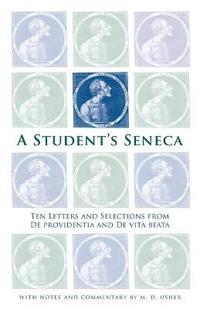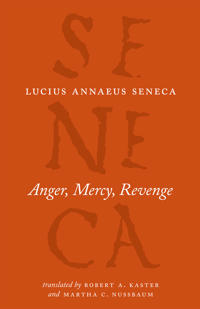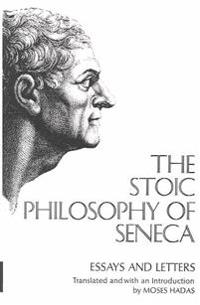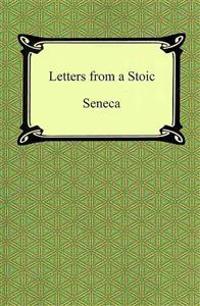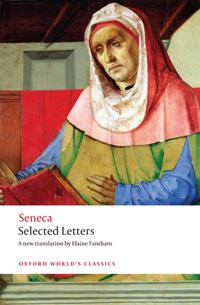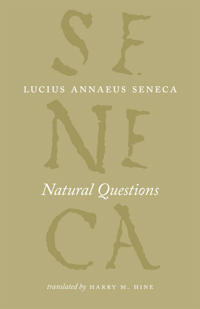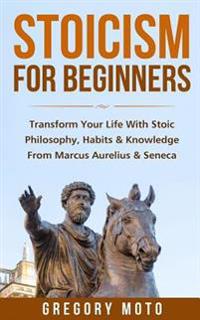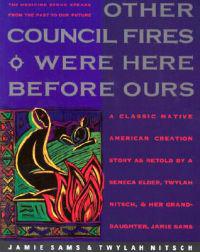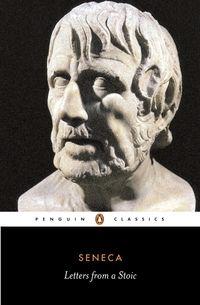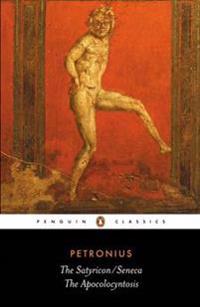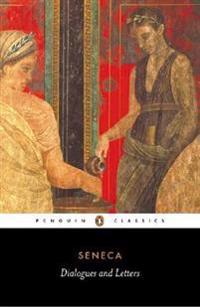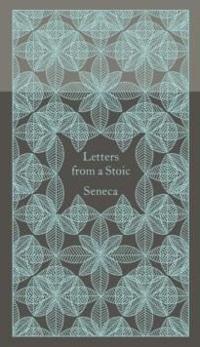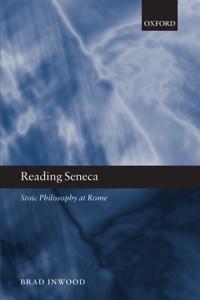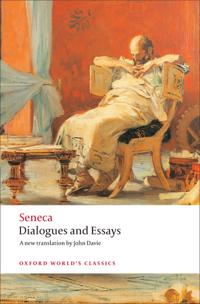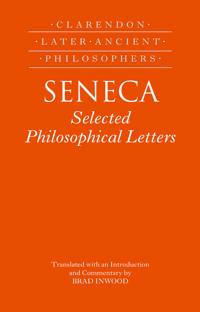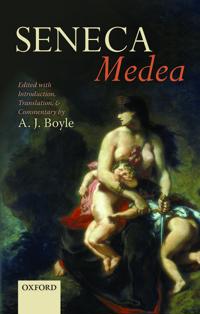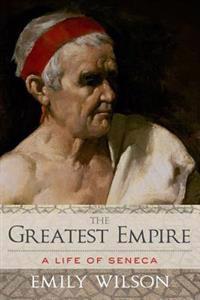A Student's Seneca: Ten Letters and Selections from de Providentia and de Vita Beata (Häftad)
avLucius Annaeus Seneca, Seneca, M. John D. Usher
ISBN: 9780806137445 - UTGIVEN: 200603Born in 4 b.c., Seneca lived during one of the most turbulent times in Roman history. He served as tutor and then adviser to the emperor Nero, witnessing firsthand many crimes and debaucheries. His experiences led him to turn away from public life and retreat into philosophical contemplation. A lead[...]
Seneca Apocolocyntosis (Pocket)
avLucius Annaeus Seneca, Paul Roth, Lucius Annaeus Seneca
ISBN: 9780929524511 - UTGIVEN: 1988-01Seneca: Anger, Mercy, Revenge (Pocket)
avLucius Annaeus Seneca, Robert A. (TRN) Kaster, Martha C. (TRN) Nussbaum
ISBN: 9780226748429 - UTGIVEN: 2012-11Lucius Annaeus Seneca (4 BCE - 65 CE) was a Roman Stoic philosopher, dramatist, statesman, and adviser to the emperor Nero, all during the Silver Age of Latin literature. The "Complete Works of Lucius Annaeus Seneca" is a fresh and compelling series of new English-language translations of his works [...]
The Stoic Philosophy of Seneca: Essays and Letters (Häftad)
avMoses Hadas, Lucius Annaeus Seneca
ISBN: 9780393004595 - UTGIVEN: 196809In The Stoic Philosophy of Seneca, representative selections from Seneca's writings offer the reader an excellent introduction to the range of his work. The selections are drawn from the essays, or dialogues, and the "Consolations;" from the treatises, of which "On Clemency," addressed to the young [...]
Letters from a Stoic (the Epistles of Seneca) (Häftad)
avSeneca
ISBN: 9781420948387 - UTGIVEN: 201301On the Shortness of Life (Häftad)
avSeneca, Lucius Annaeus Seneca
ISBN: 9780143036326 - UTGIVEN: 200509Throughout history, some books have changed the world. They have transformed the way we see ourselves--and each other. They have inspired debate, dissent, war and revolution. They have enlightened, outraged, provoked and comforted. They have enriched lives--and destroyed them.Now, Penguin brings you[...]
Selected Letters (Pocket)
avLucius Annaeus Seneca, Elaine Fantham, Lucius Annaeus Seneca
ISBN: 9780199533213 - UTGIVEN: 201005'You ask what is the proper measure of wealth? The best measure is to have what is necessary, and next best, to have enough. Keep well!' The letters written by the Stoic philosopher and tragedian Seneca to his friend Lucilius are in effect moral essays, whose purpose is to reinforce Lucilius' stru[...]
Natural Questions (Pocket)
avLucius Annaeus Seneca, Harry M. (TRN) Hine, Lucius Annaeus Seneca
ISBN: 9780226748399 - UTGIVEN: 2014-08Lucius Annaeus Seneca (4 BCE-65 CE) was a Roman Stoic philosopher, dramatist, statesman, and adviser to the emperor Nero, all during the Silver Age of Latin literature. The Complete Works of Lucius Annaeus Seneca is a fresh and compelling series of new English-language translations of his works in e[...]
Stoicism for Beginners: Transform Your Life with Stoic Philosophy, Habits & Knowledge from Marcus Aurelius & Seneca (Stoic, Stoicism, Seneca, (häftad)
ISBN: 9781523470945 - UTGIVEN: 2016-01Other Council Fires Were Here Before Ours: A Classic Native American Creation Story as Retold by a Seneca Elder and Her Gra (häftad)
ISBN: 9780062507631 - UTGIVEN: 1991-09A retelling of the Seneca creation story and prophesies for the future.
Letters from a Stoic (Storpocket)
avLucius Annaeus Seneca
ISBN: 9780140442106 - UTGIVEN: 197401A philosophy that saw self-possession as the key to an existence lived 'in accordance with nature', Stoicism called for the restraint of animal instincts and the severing of emotional ties. These beliefs were formulated by the Athenian followers of Zeno in the fourth century BC, but it was in Seneca[...]
The Satyricon; The Apocolocyntosis of the Divine Claudius (Häftad)
avPetronius Arbiter, Lucius Annaeus Seneca, Petronius
ISBN: 9780140444896 - UTGIVEN: 198612The Satyricon is a classic of comedy, a superbly funny picture of Nero's Rome as seen through the eyes of Petronius, its most amorous and elegant courtier. William Arrowsmith's translation - a lovely, modern, unexpurgated text - recatpures all the ribald humor of Petronius's picaresque satire. It [...]
Dialogues and Letters (Storpocket)
avLucius Annaeus Seneca
ISBN: 9780140446791 - UTGIVEN: 199705A major writer and a leading figure in the public life of Rome, Seneca (c. 4BC AD 65) ranks among the most eloquent and influential masters of Latin prose. This selection explores his thoughts on philosophy and the trials of life. In the Consolation to Helvia he strives to offer solace to his mother[...]
On the Shortness of Life (Pocket)
avLucius Annaeus Seneca
ISBN: 9780141018812 - UTGIVEN: 200409Throughout history, some books have changed the world. They have transformed the way we see ourselves and each other. They have inspired debate, dissent, war and revolution. They have enlightened, outraged, provoked and comforted. They have enriched lives and destroyed them. Now Penguin brings you t[...]
Letters from a Stoic (Inbunden)
avLucius Annaeus Seneca
ISBN: 9780141395852 - UTGIVEN: 2014-10A philosophy that saw self-possession as the key to an existence lived 'in accordance with nature', Stoicism called for restraint of animal instincts and severing of emotional ties. Seneca's contribution to a seemingly unsympathetic creed was to transform it into an inspiring declaration of the dign[...]
Six Tragedies (Pocket)
avSeneca
ISBN: 9780192807069 - UTGIVEN: 2010-02-28This is a lively, readable and accurate verse translation of the six best plays by one of the most influential of all classical Latin writers. The volume includes Phaedra, Oedipus, Medea, Trojan Women, Hercules Furens, and Thyestes, together with an invaluable introduction and notes.[...]
Reading Seneca: Stoic Philosophy at Rome (Inbunden)
avBrad Inwood
ISBN: 9780199250899 - UTGIVEN: 2005-06-16Reading Seneca (Häftad)
avBrad Inwood
ISBN: 9780199250905 - UTGIVEN: 2008-03Brad Inwood presents a selection of his most influential essays on the philosophy of Seneca, the Roman Stoic thinker, statesman, and tragedian of the first century AD. Including two brand-new pieces, and a helpful introduction to orient the reader, this volume will be an essential guide for anyone s[...]
Dialogues and Essays (Häftad)
avLucius Annaeus Seneca
ISBN: 9780199552405 - UTGIVEN: 200809'No man is crushed by misfortune unless he has first been deceived by prosperity.' In these dialogues and essays the Stoic philosopher Seneca outlines his thoughts on how to live in a troubled world. Tutor to the young emperor Nero, Seneca wrote exercises in practical philosophy that draw upon conte[...]
Seneca: Selected Philosophical Letters (Häftad)
avBrad Inwood
ISBN: 9780199575626 - UTGIVEN: 2010-03Seneca's Letters to Lucilius are a rich source of information about ancient Stoicism, an influential work for early modern philosophers, and a fascinating philosophical document in their own right. This selection of the letters aims to include those which are of greatest philosophical interest, espe[...]
Seneca: Medea (Inbunden)
avA. J. Boyle
ISBN: 9780199602087 - UTGIVEN: 2014-01The myth of the sorceress Medea, who, abandoned by her Argonaut husband Jason, killed their children in revenge, has exerted a continuous impact on European writers and artists from classical Greece to the present day. The ancient Romans were especially drawn to the myth, but Seneca's tragedy is the[...]
Seneca (Pocket)
avA. J. Boyle
ISBN: 9780199660506 - UTGIVEN: 2012-10-23A full-scale critical edition with commentary of Seneca's Oedipus, the only surviving ancient Roman play on one of the most important and enduring myths of European intellectual history and a work of exceptional historical and dramatic interest. The verse translation is designed for both performance[...]
The Greatest Empire: A Life of Seneca (Inbunden)
avEmily Wilson
ISBN: 9780199926640 - UTGIVEN: 2014-10By any measure, Seneca (?4-65AD) is one of the most significant figures in both Roman literature and ancient philosophy. His writings are voluminous and diverse, ranging from satire to disturbing, violent tragedies, from metaphysical theory to moral and political discussions of virtue and anger. Sen[...]

